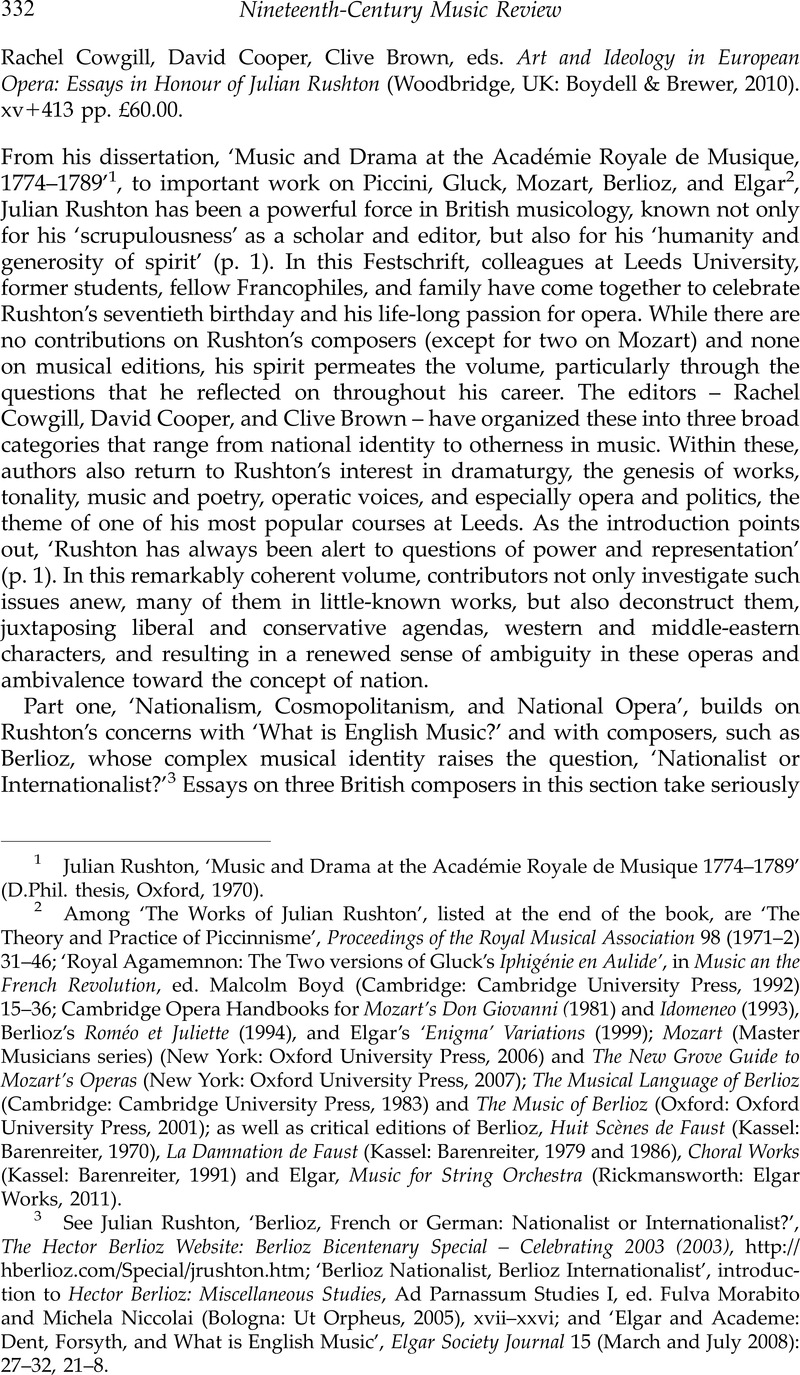No CrossRef data available.
Published online by Cambridge University Press: 08 January 2013

1 Rushton, Julian, ‘Music and Drama at the Académie Royale de Musique 1774–1789’ (D.Phil. thesis, Oxford, 1970)Google Scholar
2 Berlioz, Huit Scènes de Faust (Kassel: Barenreiter, 1970)Google Scholar
3 Rushton, Julian, ‘Berlioz, French or German: Nationalist or Internationalist?’, The Hector Berlioz Website: Berlioz Bicentenary Special – Celebrating 2003 (2003), http://hberlioz.com/Special/jrushton.htmGoogle Scholar
4 Most of the references come from Nejedly, Ceska moderni opera po Smetanovi (Prague: J. Otto, 1911). The original texts are available on the publisher's website: http://www.boydellandbrewer.com/store/viewItem.asp?idProduct=13382
5 See his ‘The Voice he Loved: Mezzo-Soprano Roles in Les Troyens’, Berlioz Society Bulletin 173 (April 2007): 26–35.
6 See his ‘Elgar, Kingdom, and Empire’, Elgar Society Journal 14 (November 2006), 15–26 and Europe, Empire, and Spectacle in Nineteenth-Century British Music, ed. Rachel Cowgill and Julian Rushton (Aldershot: Ashgate, 2006).
7 This chapter first appeared (in a fuller version) in Cambridge Opera Journal 17 (2005): 105–39. It received the H. Colin Slim Award from the American Musicological Society in 2007.
8 For a similar analysis of the importance of the Russo-Japanese war, see my ‘Political Anxieties and Musical Reception: Japonisme and the Problem of Assimilation’, Madama Butterfly: L'orientalisme di fine secolo, l'approccio pucciniano, la ricezione, ed. Arthur Groos and Virgilio Bernardoni (Florence: Leo S. Olschki, 2008), 17–53, and on the revisions, see Linda Fairtile, ‘Revising Cio-Cio San,’ in ibid, 301–15.